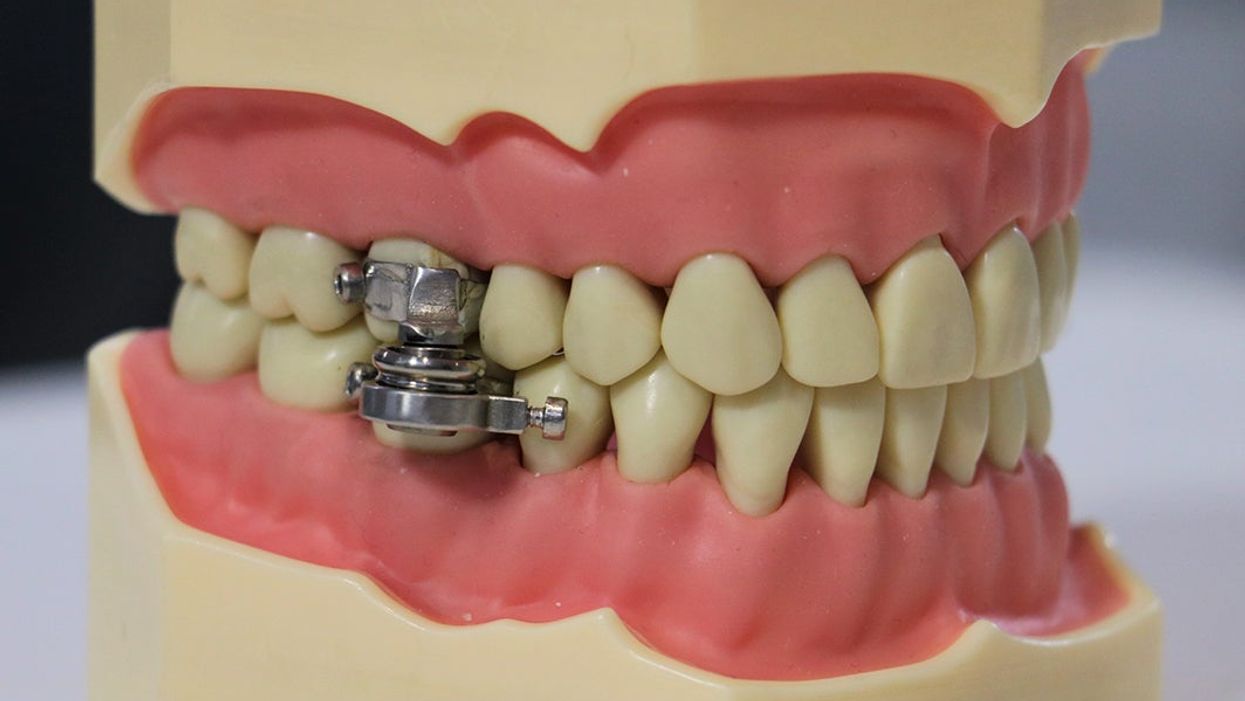News
Danielle Sinay
Jun 28, 2021

The ‘DentalSlim Diet Control’ device.
Photo Credit: University of Otago
University researchers have developed a “world first” weight-loss device that locks users’ mouths shut via magnets, thus restricting them to a liquid diet.
The device, called the DentalSlim Diet Control, is regarded as “effective, safe, and affordable tool for people battling obesity” according to University of Otago Health Sciences Pro-Vice-Chancellor Professor Paul Brunton, who also served as lead researcher for clinical studies on the device.
While seemingly barbaric at first glance, the research team says that its purpose is to help fight the global obesity epidemic.
According to the University of Otago, 1.9 billion adults worldwide are overweight and 650 million are obese, resulting in about 2.8 million deaths a year. It is estimated about 57 per cent of the world’s adult population will be overweight or obese by 2030.
“The main barrier for people for successful weight loss is compliance and this helps them establish new habits, allowing them to comply with a low-calorie diet for a period of time. It really kick-starts the process,” Brunton said.
“It is a non-invasive, reversible, economical and attractive alternative to surgical procedures. The fact is, there are no adverse consequences with this device.”
The press release notes this device “could be particularly helpful for those having to lose weight before they can undergo [bariatric] surgery, and for diabetes patients for whom weight loss could initiate remission.”
The DentalSlim Diet Control does “allow free speech and doesn’t restrict breathing,” though it only allows wearers to open their mouths approximately 2mm — or .07 inches.
According to clinical studies published in the British Dental Journal, researchers had to specifically allow for the mechanism to be disengaged to allow for participants to clean their teeth after seven days. “No participants reported bad breath or gingival soreness” the study said.
However, participants did report experiencing “occasional discomfort,” and that they “felt that life in general was less satisfying” while wearing the device. They also had “trouble pronouncing some words,” though they “felt tense and embarrassed ‘only occasionally.”
Critics of the device are troubled by it, drawing comparisons to torture techniques.
The device also draws parallels to “jaw wiring,” or inter-maxillary fixation, a medical procedure during which oral surgeons wire the jaw mostly shut, customarily used to treat jaw fractures. In the1970s and 1980s however, jaw-wiring was utilized as a technique for weight loss, but was quickly debunked by Vanderbilt University researchers as an “ineffective means of controlling weight,” as majority of participants gained weight back after regaining full control of their jaws.
Others have taken to Twitter to express concern over New Zealands nation-wide problem with fatphobia.
Top 100
The Conversation (0)













